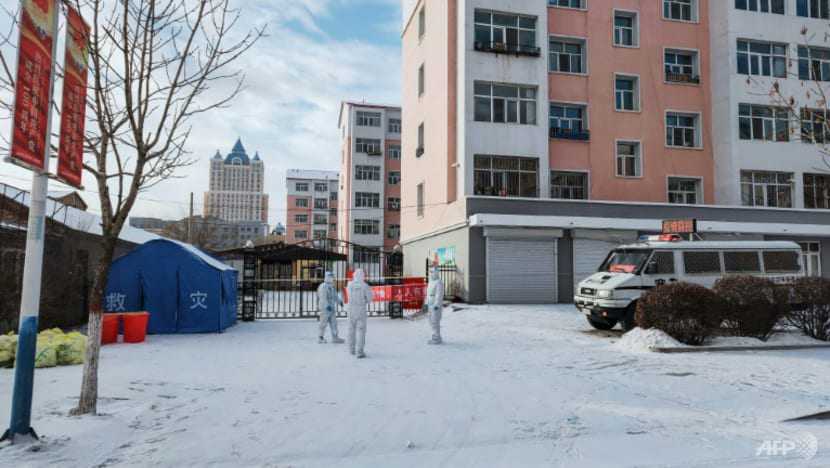Chinese city suspends rail imports after fresh COVID-19 outbreak
01 December, 2021

A northern Chinese city bordering Russia halted rail imports including coal and timber on Wednesday (Dec 1) over fears of a fresh cluster of COVID-19 infections, as the country logged its highest domestic cases in a month.
Health authorities reported 91 new cases in or close to Manzhouli - a city of 231,000 in Inner Mongolia that handles more than 65 per cent of China-Russia trade - after seeing dozens in recent days, forcing leaders to impose localised lockdowns and travel restrictions.
Authorities also said its railway port will "suspend the import of non-containerised goods including timber, coal, mineral powder, chemical fertiliser ... and other products that require manual loading and unloading", starting on Wednesday.
The aim is to "strengthen prevention and control" of the outbreak at ports and "effectively block the spread of overseas epidemics through imported goods", the notice added.
The decision to stop trains carrying coal come as China in recent months has been forced to ramp up output after being hit by an energy shortage that forced factories to close owing to strict emissions targets and record prices for the fossil fuel.
Beijing has maintained a strict zero-risk approach since the virus first surfaced in the central city of Wuhan in late 2019, using targeted lockdowns, border controls and mass testing to keep outbreaks under control.
But recent Delta-driven surges have piled pressure on this strategy.
The latest cluster involved three COVID-19 cases found through regular testing, with state media reporting that the patients possibly came into contact with imported items.
Infected patients since then have included workers in the timber industry and those who load and unload goods.
After having stamped out most domestic infections, China has linked most recent outbreaks to the virus carried by imported and cold-chain products.
"Since November, most of our newly confirmed domestic cases have been concentrated at border and port cities," said National Health Commission spokesman Mi Feng this week.
Source: www.channelnewsasia.com
